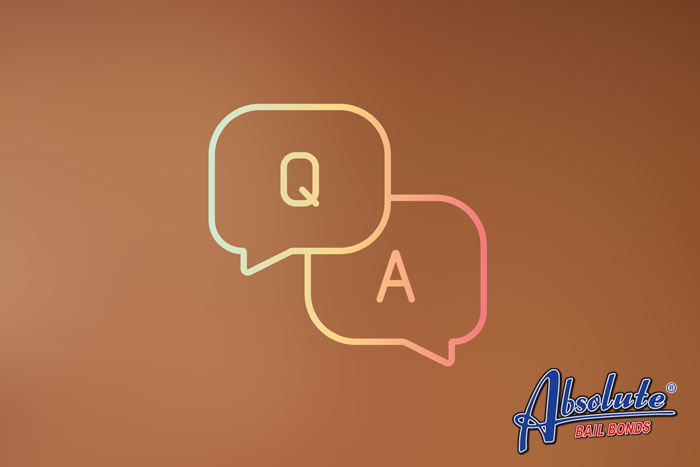
What is Catfishing?
What we currently refer to as catfishing, which is pretending to be someone else for the specific purpose of deceiving another, isn’t a new concept. It has been happening since the beginning of time. The difference between now and all the historic cases of catfishing is that social media has made deceit and connecting with people easier than ever.
Using the term catfish to describe the act of assuming a fake identity in order to dupe another became commonplace shortly after a 2010 documentary called Catfish premiered. The documentary gave a detailed and fascinating account of a woman who was completely deceived by a young man with a Facebook account.
Catfishing could be considered a bit of a long con. The perpetrator puts a great deal of time and effort into setting up the scam. They must create a fake account, post fake photos, and come up with a good story. Most importantly they must know why they’re embarking on their catfishing escapade.
Every person has their own reason for setting up a catfishing scheme. Some people do it just because they want to see if they can have a good time. Stories like the old email con from the supposed Nigerian prince who needed money do it for financial gain. Sometimes it’s a desperate attempt to connect with someone and establish a romantic connection. There are even cases like the one involving Jonelle Potter who launched a catfishing campaign that hJonishing convinced her father and boyfriend to murder for her.
The good news is that most catfishing schemes don’t end in murder, though the victims frequently lose a great deal of money to the catfisher before the con runs its course. In 2021, 3,023 California victims revealed that not only had they become ensnared in a catfishing scam, but that they had given the person running the scam. It’s estimated that the 3,023 victims collectively lost $183,928,230. And that was just in California!
The laws surrounding catfishing are… murky.
Many states don’t have a law that specifically prohibits catfishing. What they do have are laws that deal with the outcome of catfishing, such as extortion and fraud. If convicted of either offense, the person who perpetrated the catfishing scheme will be a felon and likely spend some time in a state prison. It’s also highly likely that additional crimes such as identity theft (if you assume the identity of a real person for your catfishing scheme,) phishing, and electronic harassment.

California’s Car Seat Laws
Every parent who has an infant knows that they’re supposed to have a car seat installed in their vehicle. They even know that it’s state law. What some parents don’t know is how important the car seat is and the consequences of having a car seat that doesn’t meet current safety standards, that isn’t properly installed, or that isn’t properly fitted to their child.
According to Car Buyers Guide, “in a recent study, the RSA inspected 5000 child seat installations from the public and found that over 4000 of them needed adjustments of some kind to ensure optimum safety.”
California’s lawmakers used Vehicle Code 27360 VC to address the issue of car seats. The law clearly states that:
- Children under the age of 2 must be properly restrained in a rear-facing car seat
- Children under the age of 8 must ride in the back seat and be safely restrained in an age/size appropriate safety seat.
- The child must be secured into the safety car seat in a manner that complies with both height and weight limits that are to be specified by the car seat manufacturer.
According to the Mayo Clinic, the most common mistakes parents make when it comes to the car seats they’re using include:
- Purchasing a used car seat without making sure it isn’t more than 6 years old, hasn’t been involved in an accident, hasn’t been subject to a recall, and has no indications of damage or structural problems that could endanger a child.
- Failing to properly install the car seat
- Failing to properly restrain the child before driving
- Reclining the car seat so that the child isn’t at the correct and most safe angle
- Switching their child to a forward-facing car seat before the child is ready
The first time a driver is ticketed for not following California’s car seat laws, they’ll be issued a ticket. $100 of that ticket pertains to not having the child properly restrained. Court fees and additional charges will also be added to the ticket. After that initial ticket, the fine connected to not properly restraining the child is $250.
In some cases, the ticket for not having a child properly restrained to a child seat is the least of the driver’s worries. In many situations, the driver will also face charges of negligence and child endangerment.
It doesn’t matter how big a rush you are in, always take the time to make sure your child is safe before you hit the road.

5 Things You Should Know About Your Rights
At Absolute Bail Bonds, we serve to protect the rights of those who have been arrested, whether that person is truly guilty of the crime or not. That’s why we offer an unmatched bail bond service. We are the most reliable, affordable, and helpful bail bonds in California.
If you are arrested, it is first and foremost important that you know your own rights:
- You have the right to remain silent
- You have the right to legal counsel
- You have the right to know the charges against you
- You have the right to be presumed innocent until proven guilty
- You have the right to non-excessive bail
Absolute Bail Bonds will help you protect these rights by helping you bail out of jail. It is not right to hold you in jail until court (you haven’t been formally found guilty yet!) and it is not right to “force” you to stay in jail because you cannot afford your expensive bail. This is where Absolute Bail Bonds can help you. To make an appointment, please call us immediately at 1-800-793-2245.

Proposition 57
Traditionally, whenever a law/proposition is proposed that involves crime, it’s a move to actually create stricter laws/penalties. This is especially true when it comes to violent crimes and repeat offenders. In many cases, when you research the reasoning behind the proposal, you’ll discover that crime rates have been steadily increasing and the voting population is starting to feel insecure and has been applying pressure to the officials they voted into office.
Proposition 57 is a result of people looking at the current state of California’s criminal justice system and questioning if using longer forms of incarceration is really the best way to encourage a person to change their ways. Many California residents have also started wondering if maybe there isn’t a better way to spend the millions of tax dollars that are currently used to house/feed/clothe criminals. Many wonder if spending that money on rehabilitation/education programs might be a better solution.
While many lawmakers were skeptical about the future of Proposition 57, after all, who ever heard of the voting public liking laws that were viewed as being soft on crime, in November 2016, California voters passed the proposition.
The interesting thing about Proposition 57 is that it placed the issue of rehabilitation squarely in the hands of convicted criminals. What the proposition did was created an incentive program for inmates that allowed them to be responsible for their own rehabilitation while also increasing the odds of them being granted parole.
Proposition 57 created a credit program. Inmates who were well-behaved and who also took part in an in-prison rehabilitation/education program received a credit.
The different credits created by Proposition 57 include:
- Good Conduct Credits
- Educational Merit Credits
- Milestone Completion Credits
- Rehabilitative Achievement Credits
The great thing about these credits is that anyone who has been convicted of a non-violent crime has the opportunity to really prove that they are not considered a violent risk to the community and should be considered for parole. The parole board looks at the credits an inmate has earned and their criminal history and is more inclined to grant them early release.
Recently the California Supreme Court heard a case that prompted them to rule that Proposition 57 did not apply to incarcerated criminals who have a history of violent crimes. “In reaching this conclusion, we find the constitutional text (of the ballot initiative) is ambiguous,” Chief Justice Tani Cantil-Sakauye wrote on behalf of the court. The ruling made it impossible for inmates who were serving sentences for a combination of violent and nonviolent crimes to use the credit program to qualify for early parole.

The Purpose of Proposition 47
The purpose of Proposition 47 is to make some changes to felony sentencing laws.
Proposition 47 officially became law in 2014. At the time it had the distinction of being one of the biggest changes to laws to alter the ability for convicted felons to receive housing, admittance into the workforce, and other issues that had previously made it impossible for them to enjoy a quality life after they served their sentence. The way this was done was taking non-violent felony convictions and turning them into misdemeanors. The hope was that by lowering the barriers convicted felons faced when they were released from prison, they would be better able to become a useful member of society and be less likely to return to a life of crime.
When Proposition 47 became law, it was estimated that over 1 million people living in California would be able to change their non-violent felony conviction records into more socially acceptable misdemeanors.
The three changes the passing of Proposition 47 triggered include:
- Turning some nonviolent theft and drug laws from felonies into misdemeanors
- Allowing anyone currently serving time for a felony that could now be reclassifying to petition the court for a change of sentence
- Allowing individuals who’d completed their sentence for a felony that was now considered a misdemeanor to change their criminal history
While there was a great deal of concern about what would happen once Proposition 47 became law, the impact it has had on California has been mostly positive.
Improved Public Perception
One of the biggest positive changes it made was changing the way the rest of the country perceived California’s judicial and prison situation. When California first passed the three-strikes law, many objections were raised, and several people stated that the three-strike laws proved that there was something inherently wrong with the way California treated criminals.
The passing of Proposition 47 proved to the world that California was prepared to give people a second chance as well as an opportunity at a better life.
Less Prison Overcrowding
Overcrowding in the prisons has been a huge issue for California. The sheer number of people housed in the state’s prisons is not safe. While Proposition 47 hasn’t totally reversed California’s prison overcrowding situation, it has helped.
Better Criminal Rehabilitation
One of the things California lawmakers discovered after they passed the three-strike law was that tougher sentences didn’t really encourage criminal rehabilitation. In some cases, the three-strike laws seemed to make things worse.
When Proposition 47 became law, it allowed some people to be released from prison which created some room in the budget. This extra money has been used to help finance criminal rehabilitation programs.
Schools have Benefited
In 2016 a fund connected to Proposition 47 was started that helped benefit schools throughout California. The funding came in the form of grants that were designed to help reduce the number of truancy issues the schools dealt with on a daily basis. The hope is that the extra funding will decrease the drop out rate. With more children completing high school and able to enter the workforce, hopefully petty crime rates will decrease.
Perhaps the most encouraging thing the state of California has experienced since the passing of Proposition 47 is that there hasn’t been a noticeable increase in violent crime since 2014.

Fraudulent Use of a Credit Card
Credit card fraud happens when someone uses another person’s credit card to either make unauthorized purchases or to withdraw/transfer funds.
There are two main ways that credit card fraud takes place. The first method involves someone either finding or stealing another person’s credit card. Instead of turning it in, the person decides to put the credit card to use and goes on a shopping spree.
The second way that credit card fraud happens is when one person hacks into another person’s credit card accounts, steals the numbers, and starts using them for themselves.
The good news is that you have it in your power to limit the amount of strain both types of credit card fraud puts on your life. The first thing you need to do is become vigilant about checking your credit card statement for unfamiliar charges. The best approach is to have email alerts sent to you each time your card is used. If that’s not possible, get into the habit of logging into your credit card account and checking the transactions at least once a day.
As soon as you see charges that you didn’t make, you need to leap into action and arrange to have your current credit card canceled and a new one issued. Once you’ve done that, start working with your credit card company to get the charge reversed. The sooner you contact the insurance company, the better.
California lawmakers take credit card fraud very seriously. Using another person’s credit card without that person’s permission is illegal. The exact consequences depend on which of California’s laws were broken. In some cases, credit card fraud is only a misdemeanor while in others it is treated as a serious felony. In serious cases, someone who is convicted of credit card fraud in California could be sentenced to three years in prison and also be charged a large fine.

Absolute Bail Bonds Q&A
Do You Need to Pay Bail?
If you’re wondering if you need to pay bail, the simple answer is no. Bail is an amount of money (and sometimes conditions that have to be met) that you have to pay if you wish to be released from jail while your case makes it way through the legal process.
Just because bail has been set, you don’t have to pay it. Some people opt to remain incarcerated while others would prefer to go free. The choice is yours.
Do you Need to Use a Bail Bondsman?
Some people believe that they need to use a bail bonds company in order to cover their bail and be released from jail. The truth is that you don’t need to. If you have enough money on your own, you can pay your own bail or have a friend cover the expense.
How Complicated is the Process?
The bail bond process is one of the simplest aspects of the judicial process. Shortly after you’ve been charged and arrested, you go before a judge who determines the amount of your bail. At this point, you have the option of paying it or of returning to your cell. If you chose not to bail yourself out right away, you still have the option of doing so at a later date.
If you contact us and ask for our help, we require:
- Proof of Residency
- A valid state-issued identification card or driver’s license
- A pay stub or bank statement that shows regular deposits
We provide everyone who contacts us with a free consultation. During the consultation, you’ll speak to a highly experienced bail bond agent who will patiently answer all of your questions and guide you through the bail bonds process. Taking advantage of this consultation is completely free of obligation.
We have a great deal of experience with the local court system and will do everything in our power to expedite the process so you can return to your family and job.
How Difficult is it to Reach Absolute Bail Bonds?
We’re incredibly easy to reach. We’re available 24 hours a day 7 days a week. We promise to handle your case with compassion. The sooner you contact us, the sooner we’ll help you walk away from jail. Feel free to call us at (800)793-2245.

The Difference Between Bench Warrants and Arrest Warrants
Many people don’t realize that bench warrants and arrest warrants are two different things. While both have the same end result, you get arrested, they’re handled in two very different ways.
What is an Arrest Warrant
Before an arrest warrant can be issued, a judge has to sign off on the document. This happens when a new crime has taken place and the police present the judge with enough evidence that you could have been involved. The arrest warrant doesn’t mean that you’re guilty, it simply means that a judge agrees that the police have a legal right to require you to speak to them about the case.
Something that some people don’t realize is if you’re arrested without an arrest warrant that summarizes the crime you’re suspected of or if there is insufficient probable cause to justify the arrest warrant. One of the things a good defense attorney looks at is the probable cause connected to the search warrant. If there wasn’t sufficient evidence, it’s possible they’ll be able to get the arrest warrant dismissed so you can go home.
What is a Bench Warrant?
A bench warrant is another warrant that gives law enforcement the right to arrest you but it’s not the same thing as an arrest warrant. Bench warrants are issued when you do something like fail to appear in court. Most police officers don’t actively go after people who have a bench warrant sworn out against them. A vast majority of people who have bench warrants issued for them are caught during traffic violations.
It’s not a bad idea to contact a criminal defense lawyer and ask for their help with the bench warrant. It’s likely that they will guide you through the process of contacting the court house and rescheduling.
If you suspect that a bench warrant has been issued for you, it’s in your best interest to be proactive about the situation. Rather than spending all of your time looking over your shoulder or stressing that each time you go a few miles over the speed limit you’ll be arrested, you should resolve yourself to settle the matter once and for all.
When dealing with an outstanding warrant, you seek out the services of a good defense attorney. Not only will they be able to confirm if there an outstanding warrant has been issued for you, but they will also help you through the initial booking process, help you decide how to handle bail, and guide you through the hearing.
You won’t believe how much better you feel once you’ve resolved all the legal issues surrounding an outstanding warrant and are able to resume your life without having to worry about being arrested.



